17 Jul 2021 - {{hitsCtrl.values.hits}}
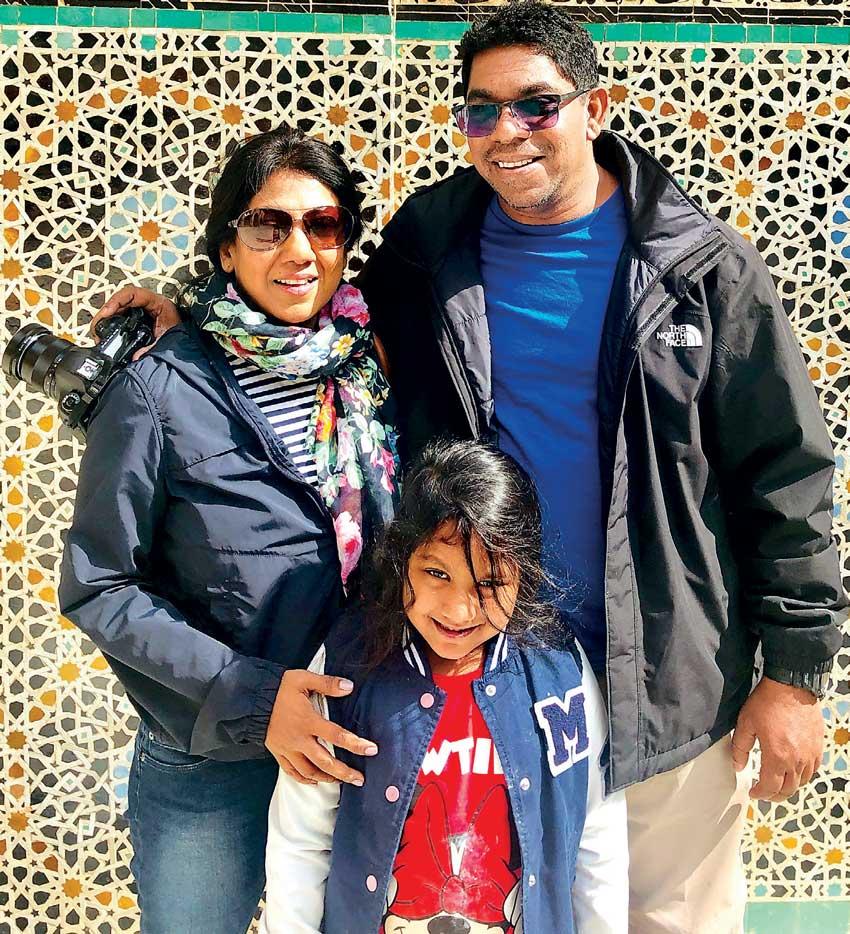
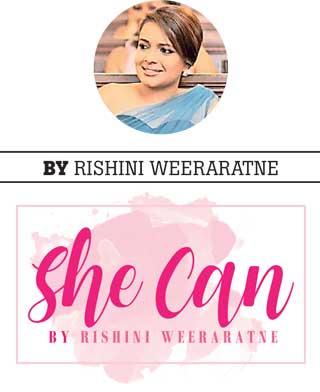 She is a Consultant Neurosurgeon trained in the U.K., specializing in Neurooncology. In 2011, she was appointed as a Consultant Neurosurgeon in UK. She is a resident Neurosurgeon at Lanka Hospitals PLC, and she continues to visit the Hope Hospital in Manchester, UK as a visiting Consultant at regular intervals. She was responsible for establishing the Neurooncology department at Lanka Hospital, and in 2016, she carried out the first awake craniotomy in Sri Lanka. In 2016, she was awarded the Wilkins Barrick Neurooncology grant, by the Society of Neurooncology. She utilized this grant to set up the first International Brain Tumor meeting in Sri Lanka with the collaboration of the Neurosurgeons Association of Sri Lanka in 2017. She worked as a Part-time Research Assistant in the Vascular Biology Group at the University Department of Anesthesia during her medical school years at Manchester Royal Infirmary, Manchester. She completed a six-month rotation in Cardiology, Respiratory Medicine, Gastroenterology and Elderly Care at the Royal Infirmary in Lancaster, UK. She was a
She is a Consultant Neurosurgeon trained in the U.K., specializing in Neurooncology. In 2011, she was appointed as a Consultant Neurosurgeon in UK. She is a resident Neurosurgeon at Lanka Hospitals PLC, and she continues to visit the Hope Hospital in Manchester, UK as a visiting Consultant at regular intervals. She was responsible for establishing the Neurooncology department at Lanka Hospital, and in 2016, she carried out the first awake craniotomy in Sri Lanka. In 2016, she was awarded the Wilkins Barrick Neurooncology grant, by the Society of Neurooncology. She utilized this grant to set up the first International Brain Tumor meeting in Sri Lanka with the collaboration of the Neurosurgeons Association of Sri Lanka in 2017. She worked as a Part-time Research Assistant in the Vascular Biology Group at the University Department of Anesthesia during her medical school years at Manchester Royal Infirmary, Manchester. She completed a six-month rotation in Cardiology, Respiratory Medicine, Gastroenterology and Elderly Care at the Royal Infirmary in Lancaster, UK. She was a 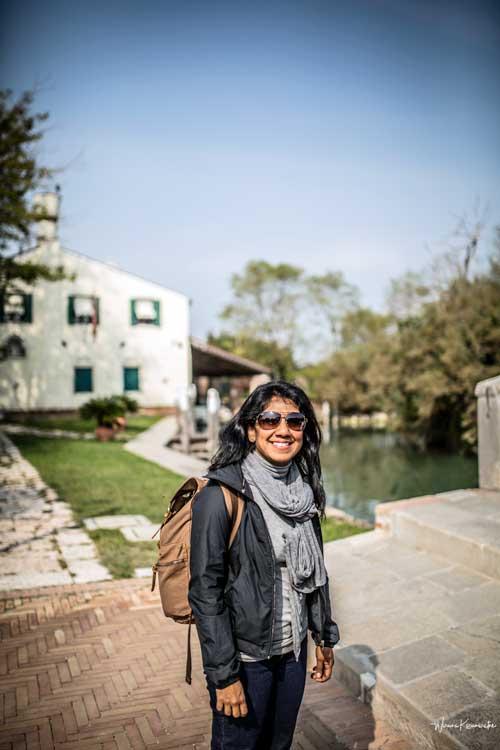 Pre-Registration House Officer (Surgery) at the Hope Hospital in Manchester. She was a Senior House Officer (Neurosurgery, General Surgery, Orthopedic and Plastic Surgery) at the Addenbrookes Hospital, Cambridge. She also worked as a Specialist Registrar, Neurosurgery at the Southampton General Hospital, Hope Hospital, Manchester, Royal Manchester Children’s Paediatric Hospital, Preston Royal Hospital, UK, and at the National Hospital, Colombo.
Pre-Registration House Officer (Surgery) at the Hope Hospital in Manchester. She was a Senior House Officer (Neurosurgery, General Surgery, Orthopedic and Plastic Surgery) at the Addenbrookes Hospital, Cambridge. She also worked as a Specialist Registrar, Neurosurgery at the Southampton General Hospital, Hope Hospital, Manchester, Royal Manchester Children’s Paediatric Hospital, Preston Royal Hospital, UK, and at the National Hospital, Colombo.
She was a Consultant Paediatric and Adult Neurosurgeon at the Central Manchester Children’s Hospital and at the Salford Royal Hospital, UK. She is a Visiting Consultant Neurosurgeon at the Salford Royal NHS Foundation Trust and at Hope Hospital, Manchester, UK. She is a Senior Lecturer at the Department of Surgery at the Kelaniya University, Sri Lanka.
She is a member of the General Medical Council, a member of the Royal College of Surgeons, London, a member of the Society of British Neurological Surgeons, a member of the European Association of Neurosurgeons, a member of the Society of Neurooncology, a member of Zonta International, a member of the Sri Lankan Medical Association, a member of the College of Surgeons of Sri Lanka, and she is on the Executive Committee for the Neurological Surgeons Association of Sri Lanka. An alumna of University of Manchester; B.Sc.(Hons) Pharmacology and Physiology, she was also awarded a M.B.Ch.B in 2000. In 2003, she was awarded a M.R.C.S by the Royal College of Surgeons, UK. In 2010, she was awarded a Diploma in Neurosurgery from the European Association of Neurosurgeons. She completed her neurosurgical training in the U.K and was awarded the Fellowship by the Royal College of Surgeons specializing in Neurosurgery. She was a Founding Member of the Manchester University Sri-Lankan Society, and she was a Visiting Lecturer at the University of Central Lancashire, UK. She is a Neurosurgical Trainer in the U.K., and has been on the selection committee for Neurosurgery.
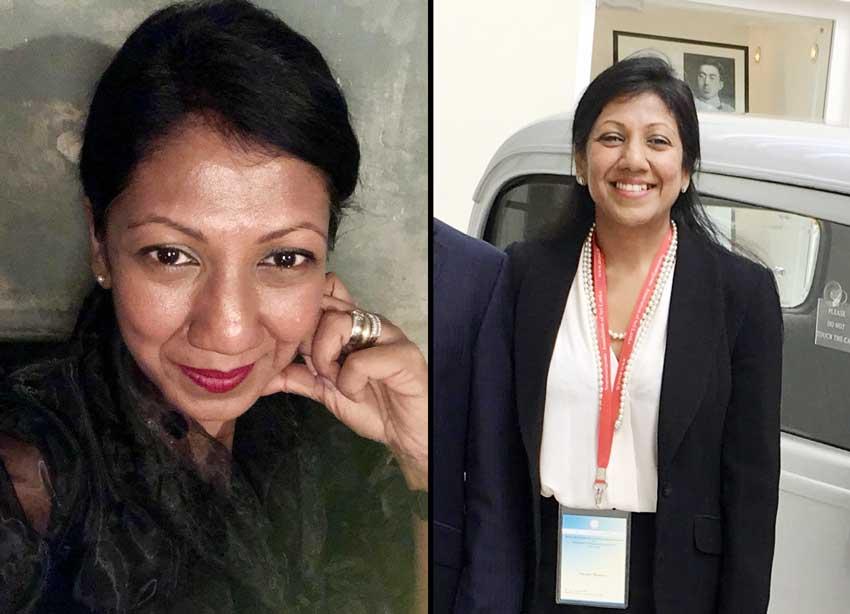
She is an ethical, nurturing, selfless individual who has dedicated her entire life to save lives. She is a highly qualified, compassionate professional with a strong work-ethic. She is one of Sri Lanka’s most reputed Neurosurgeons; Dr. Ruvini Abeygunaratne
Why did you chose to become a Doctor?
My father was a doctor and he always hoped that one of his two children would follow in his footsteps, this was re-enforced by a very strong Sri Lankan mother who used subtle emotional abuse that a doctor’s daughter should get a good education and the best path for her to follow was in her fathers footsteps. I didn’t need much persuasion, I saw how many people my father helped and the respect he had amoungst his colleagues and patients, and hence I naturally gravitated towards medicine. As a young medical student I always knew I wanted to be a surgeon; I didn’t like the long ward rounds, the change in medications and the constant deliberation amoungst Physicians. Hence, I wanted to be someone who could do something to help patients and make them better or save a life, without deliberating too much. Initially, my choice was Cardiothoracic Surgery and I spent time at UCLA in California working with Professor Laks and his team. Subsequently, I realized that cardiothoracic surgery or more presisly heart surgery, was soon going to be obselete as the interventional radiologists were doing alot of the work that the cardiac surgeons were doing. Therefore, I thought I might not have a job at the end of my training, hence upon returning back to the UK I looked into other surgical specialities.
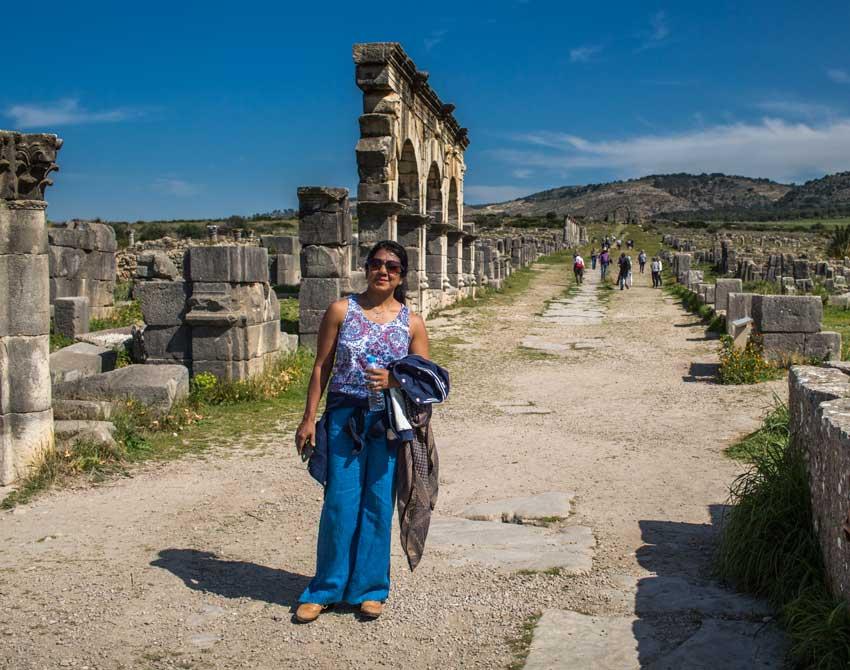
Why did you chose Neurosurgery?
I was fasinated by the human brain, and how it functions, and I was awstruck by the skill and precision required in Neurosurgery. I think with a combination of being at the right place at the right time, and of course lots of hard work, I was exposed to Neurosurgery very early on in my surgical career, at Addenbrookes Hospital, in Cambridge. Cambridge had the reputation of being one of the most prestigeous neurosurgical units in the world and with this exposure and the guidence I received from my teachers, some of whom are world leaders in Neurosurgery, I was totally hooked.
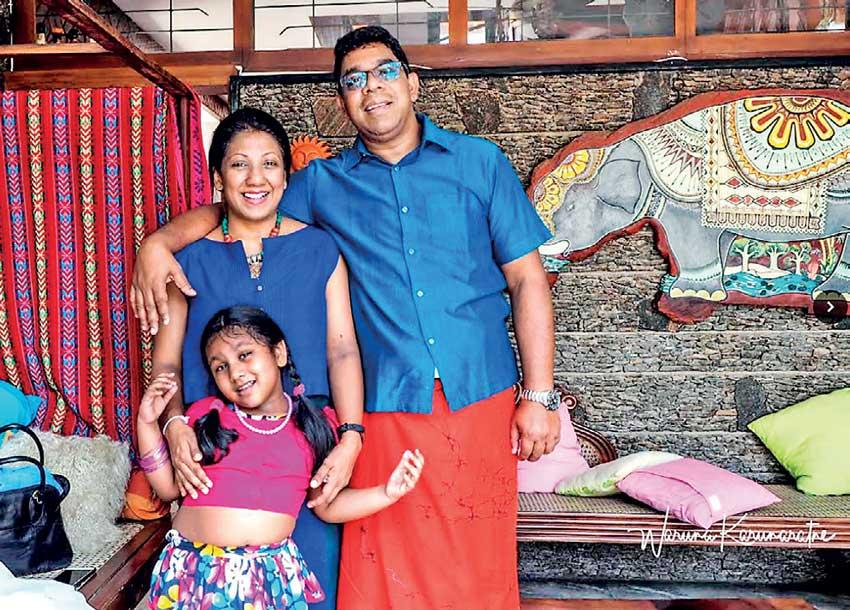
What are the most important attributes of successful leaders today?
To be a leader in medicine, which is a vocation in itself, and not a job, empathy is extremely important. As a Consultant Neurosurgeon you are the team leader and others follow you. Hence, your actions have a significant impact on others, especially the patients. A Consultant should be clear in decision making and imparting instructions to the team. Communication skills are extremely important in our line of work, as an error could effect a patients life and progress. It is also important to listen to your team members and be aware that you can also learn a lot from even the most junior member. Being available to help with progression in their careers and helping by teaching and pointing out avenues available for progression is our duty as leaders in the field.
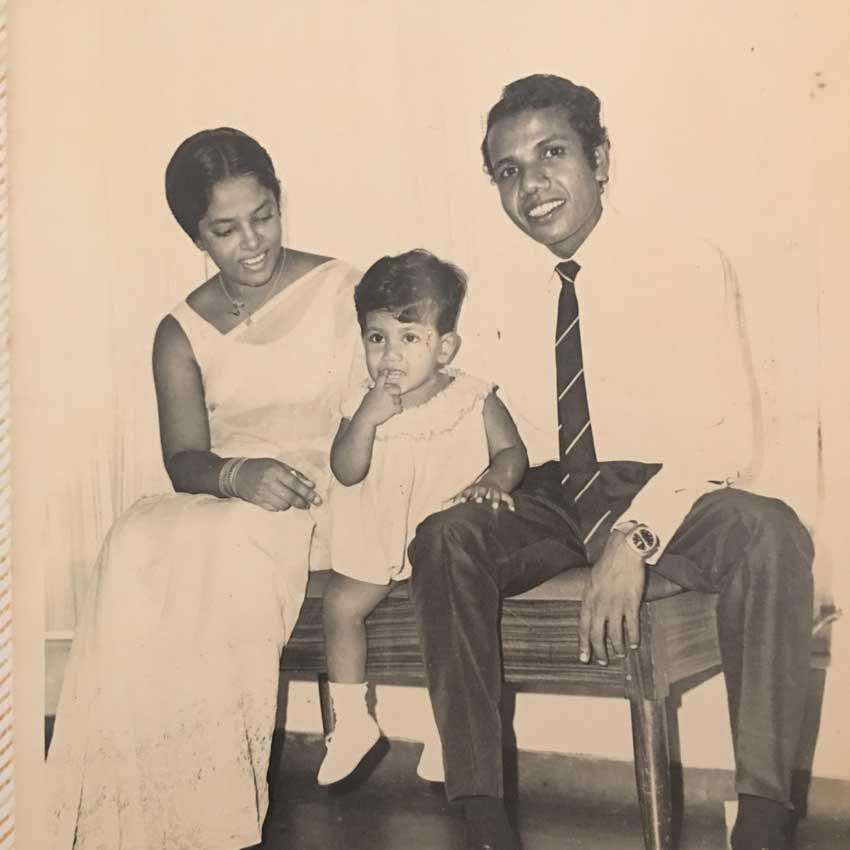
Do you ever think – “Am I crazy?"
I know I’m a little crazy! My passion is operating on brains; anyone who enjoys spending hours at a time dissecting through different areas of the brain or even the spine for that matter, has to be a little crazy. I feel you have to be a bit eccentric to choose what you do and love it. My happy place is inside the theatre operating, and concentrating on the task to make sure my patient has the best possible outcome. Hence, I don’t think my patients mind me being a little crazy; I have music playing in the background to help me concentrate! I think my personality is also a tad crazy; I take calculated risks which have good outcomes. I am adventurous and I’m always ready to try new things.
How do you differentiate yourself?
I am the same as any other person who does a job they love, the only difference is that there are not many people who do what I do, and even fewer women. When I started my Neurosurgical training in Manchester, I was the first female traniee in Neurosurgery. When I started my training in the UK, there were a total of twently female Consultants, and very few trainees. I am also a short, Asian female in the field; a rare species. I knew I was in a man’s world but it didnt in anyway stop me from getting to where I wanted to go. I must say six inch heels did help! I learnt to work in an enviroment where sometimes I had to work a little harder and give as good as I got. But I don’t differentiate myself from other women in that sense, I think every single woman has the capacity and capability to do anything they want to in life, you have to believe in yourself, and remove yourself from those who say you can’t.
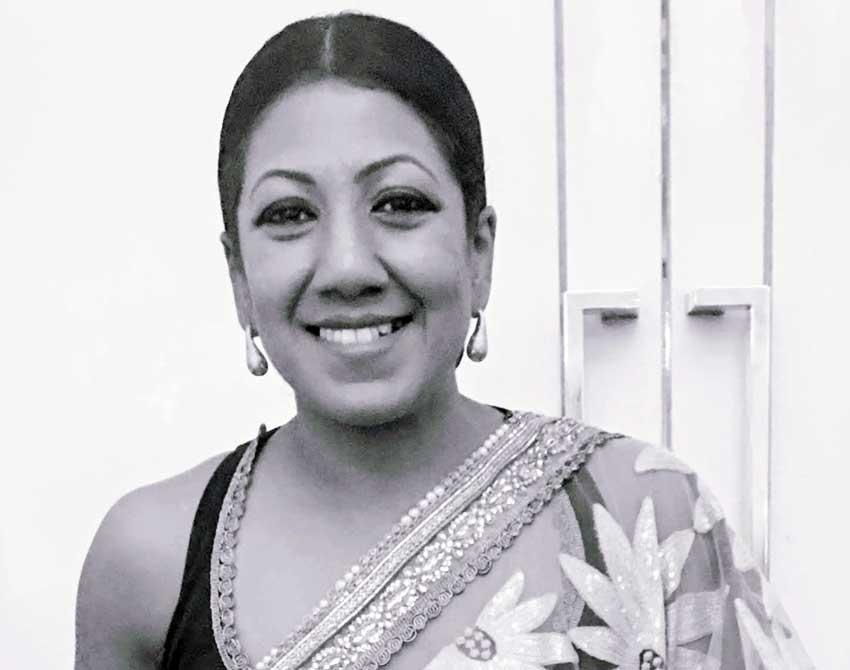
Who do you look up to for inspiration or mentorship?
I look up to many people, but my primary source of inspiration would be my parents who gave me all the opportunities and exposure I needed, by making several sacrifices. They uprooted our comfortable life in Sri Lanka, and moved to the UK so that my sister and I could get a better education. They taught me from an early age that anything is possible if you dream and work hard. They convinced me that any setback is just a stepping stone that eventually leads to the road towards success. My parents also instilled in me how important family and roots are, and they never let me forget where I came from and how grateful I should be. My mother still keeps me grounded, she reminds me constantly of my position first as a daughter, wife and mother, and second as a surgeon.
What is your biggest fear and how do you manage it?
I was fearless, till I had my daughter. I never thought for a second that having child would change you, but it did. I fear what my child will have to face in the future. With everything that is happening in the world with wars, climate change, the pandemic, etc. I fear for her. But, I keep reminding myself that we also went through significant events in life, and in the same way as my parents gave me the strength to deal with life, I hope I instill the same strength in her.
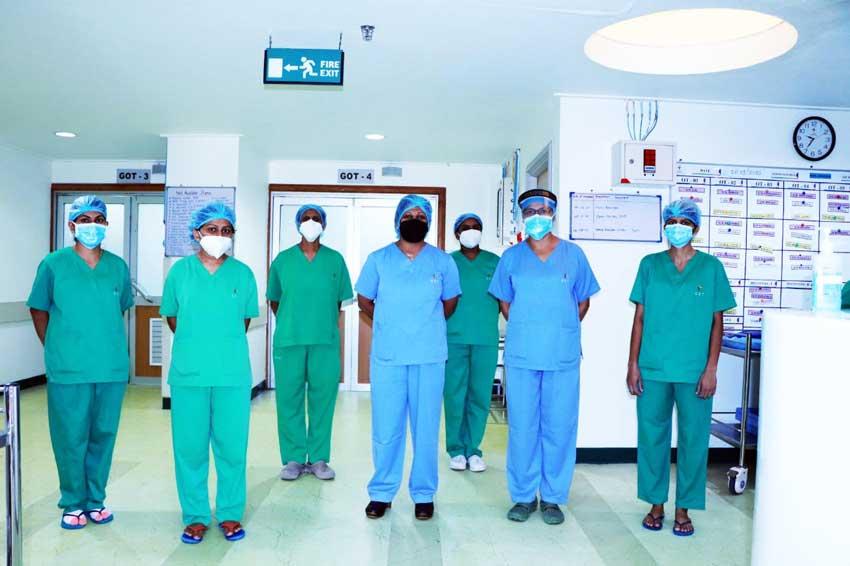
If you could go back and tell yourself one thing before beginning your career what would it be?
Dont worry about a thing, your going to have an incredible time and a lot of fun!
What has been the highlight of your career so far?
My subspeciality within Neurosurgery is Neurooncology. I have a special interest in removing brain tumours. I did my fellowship in Neurooncology in Montpellier, France, under a Neurosurgeon called Professor Huges Duffau. He is an internationally renowned expert in removing brain tumours with the patient wide awake, and communicating with them during the operation. These are called awake surgeries and the highlight of my carrer was being able to carry out the first awake craniotomy in Sri Lanka a few years ago. The lady had the tumour removed and was dischaged within two days without any deficits.
What was the biggest rookie mistake you made when just starting out?
Initially, when I started, I thought I needed to think and act like a man, as there were not many women around me working in the same field. However, this soon changed. I quickly learnt that I didn’t need to change myself, I just needed to change others perception of me. They soon caught on and I became an integral part of the team. I recall being offered a cigar the day I passed my Fellowship to become a Consultant Neurosurgen. It was like being welcomed in to a boys club. This was in the UK though, where alot of the male consultants still wore tweed and pin striped suits. Thank god for the few fantastic female consultsants!
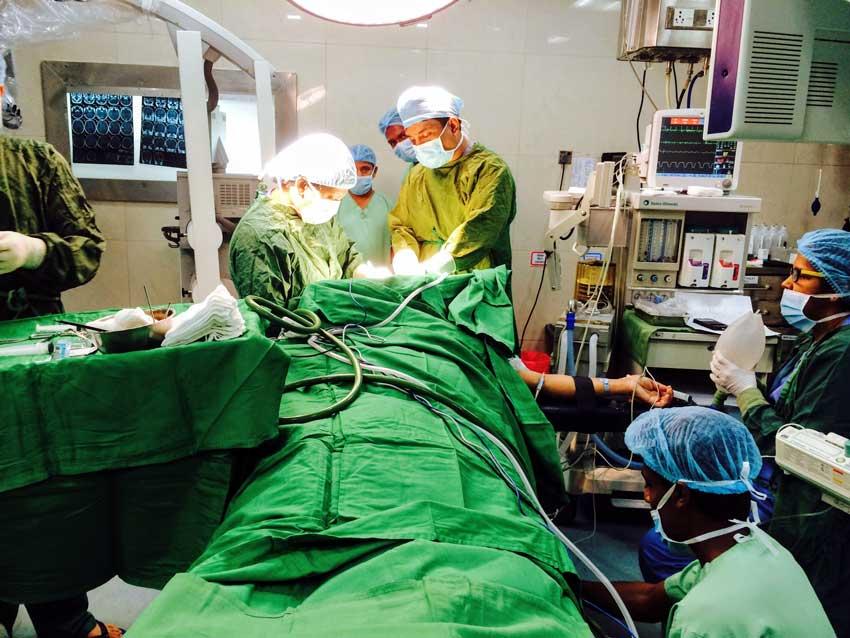
Have you been harassed or discriminated against?
Discriminated – no. Harassed – maybe!
I was never discriminated. People find it quite surprising when I say this. I was never discriminated in the UK for my gender, color or ethnic background. I was keen to learn, and I was good at what I did. I was very hard working and always available, hence I fitted in to the team. However, I was once told by a male trainer that I shouldn’t have any children as Neurosurgery was an extremely demanding career. I laughed it off at the time, but looking back now, I could have reported him. It just didn’t cross my mind at the time as I was so happy to start training.
Where do you see yourself ten years from now?
Still operating and teaching others how to operate - I hope! But also enjoying other things in life, spending more time with my family and exploring the world.
What is the best and worst decision you've ever made?
The best decision I made was to get married to a man who is as crazy as I am, and who supports me in everything I do. He hated the UK, hence we moved back to Sri Lanka after living in the UK for twenty-five years. The worse decison is that I didn’t move back earlier.
How do you want to be remembered one day?
Someone who made a difference in peoples lives, who was a little crazy and was loved by family and friends.
08 Jan 2025 13 minute ago
08 Jan 2025 2 hours ago
08 Jan 2025 3 hours ago
08 Jan 2025 4 hours ago